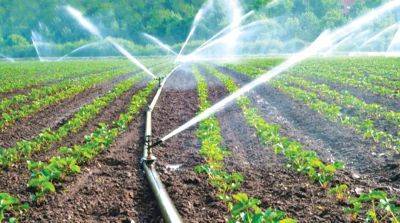LUCKNOW, 6 July 2025: Micro-irrigation has emerged as a game-changer in India’s agricultural landscape, proving critical for scaling climate-smart agriculture. With climate risks intensifying, adopting such water-efficient techniques is vital to improve yields, build resilience, and protect food security.
Micro-irrigation can reduce water use by 30–70%, limit soil erosion, and minimise fertiliser and pesticide needs. According to the World Bank, every rupee invested in micro irrigation generates INR 1.5–2 of farm output. The Centre’s Per Drop More Crop mission under the Pradhan Mantri Krishi Sinchayee Yojana (PMKSY) has accelerated adoption in states like Uttar Pradesh, Maharashtra, Karnataka, and Tamil Nadu.
In Uttar Pradesh, the Micro-Irrigation Project (UPMIP) launched in July 2023 aims to scale up coverage from 30,000 hectares to 7,50,000 hectares by 2028. Supported by the World Bank’s 2030 Water Resource Group, the project provides drip systems, sprinklers and other solutions while channelling government subsidies through a digital platform. So far, over 3.5 lakh farmers have registered.
Small and marginal farmers can avail up to 90% subsidy, while others can access 80% for up to five hectares. However, farmers still require financing to cover the remaining 10–20% cost. Over 1.85 lakh farmers are currently seeking funding to adopt these systems, creating a substantial opportunity for MFIs, banks, NBFCs and impact investors.
Industry collaborations are emerging to address this gap. A partnership between Sa-Dhan, GIZ India and Sustain Plus Energy Foundation, with MFIs such as Midland Microfin Limited, aims to build access to affordable finance. Similarly, the Lakhpati Kisan programme empowers tribal households through climate-smart farming, SHGs, and digital tools, enabling over 45,000 families to surpass INR 1 lakh annual income.
In drought-prone Bundelkhand, nearly 30,000 hectares have been transformed through micro irrigation, improving water-use efficiency and farm profitability. Another 1.6 lakh farmers have registered to expand irrigation on nearly 1.9 lakh hectares.
The success of UPMIP, coupled with the role of financial institutions, demonstrates that micro-irrigation is economically viable and ecologically sustainable. Collaborative financing models, including debt, equity and blended finance, will be essential to make climate-smart solutions scalable nationwide.
Experts say micro-irrigation is more than a water-saving practice; it is a holistic pathway to resilient, climate-proof agriculture. As climate change accelerates, financial institutions must view investments in micro irrigation not merely as loans but as strategic enablers of India’s food security.
Image credit: agri-route.com




















